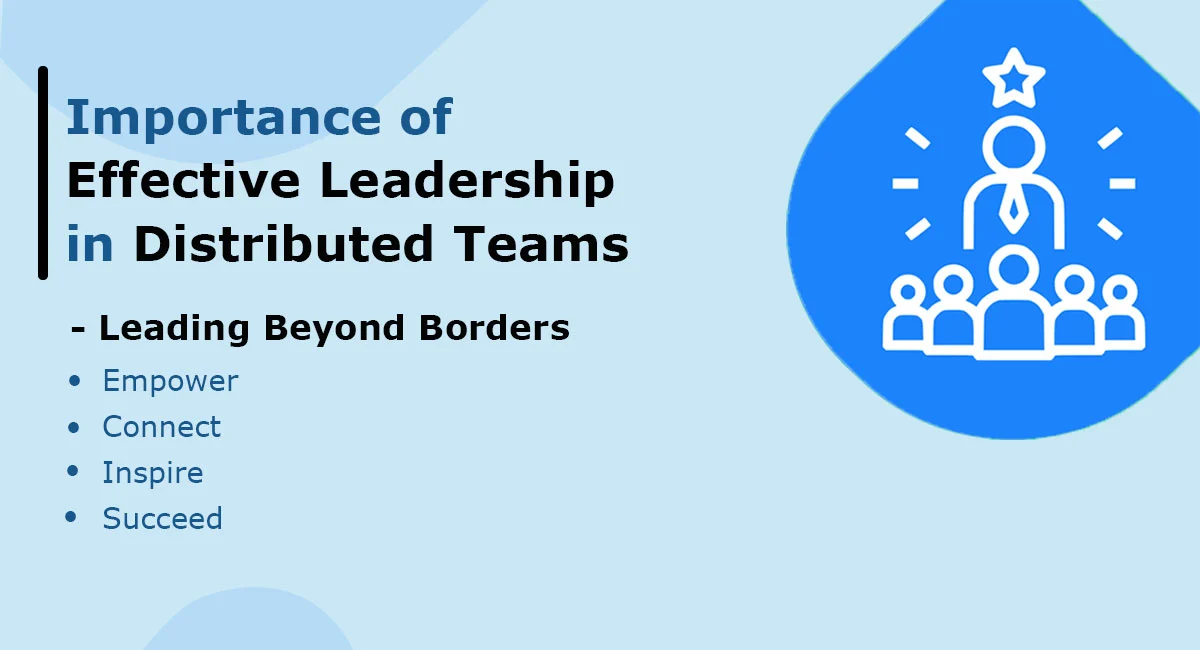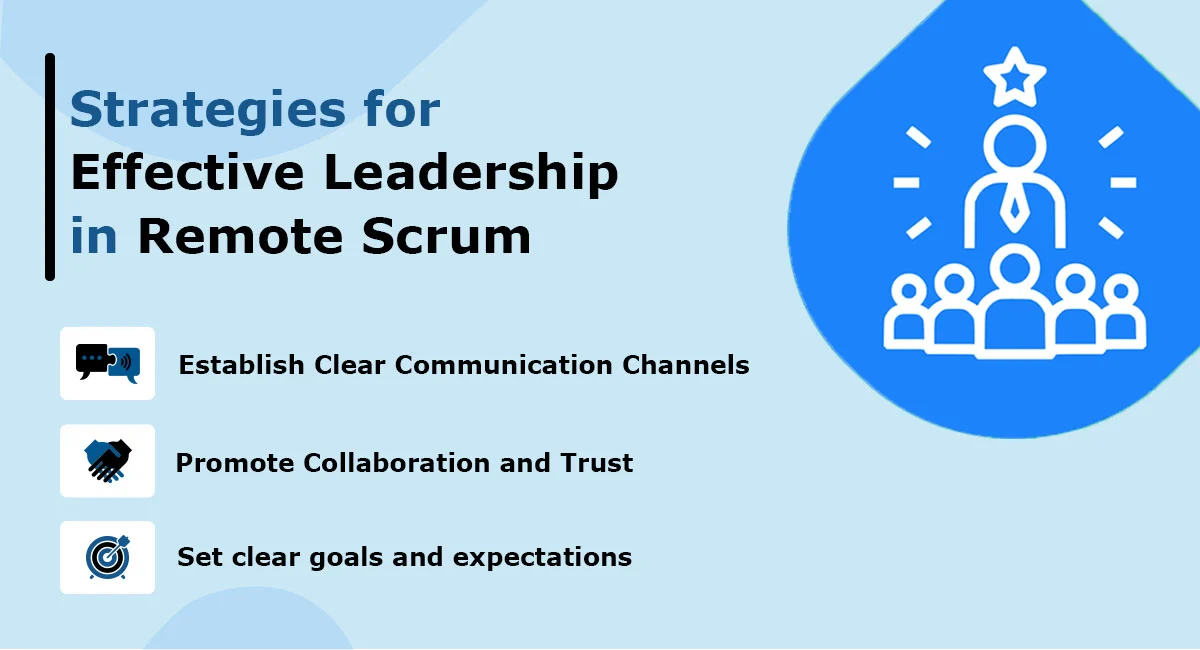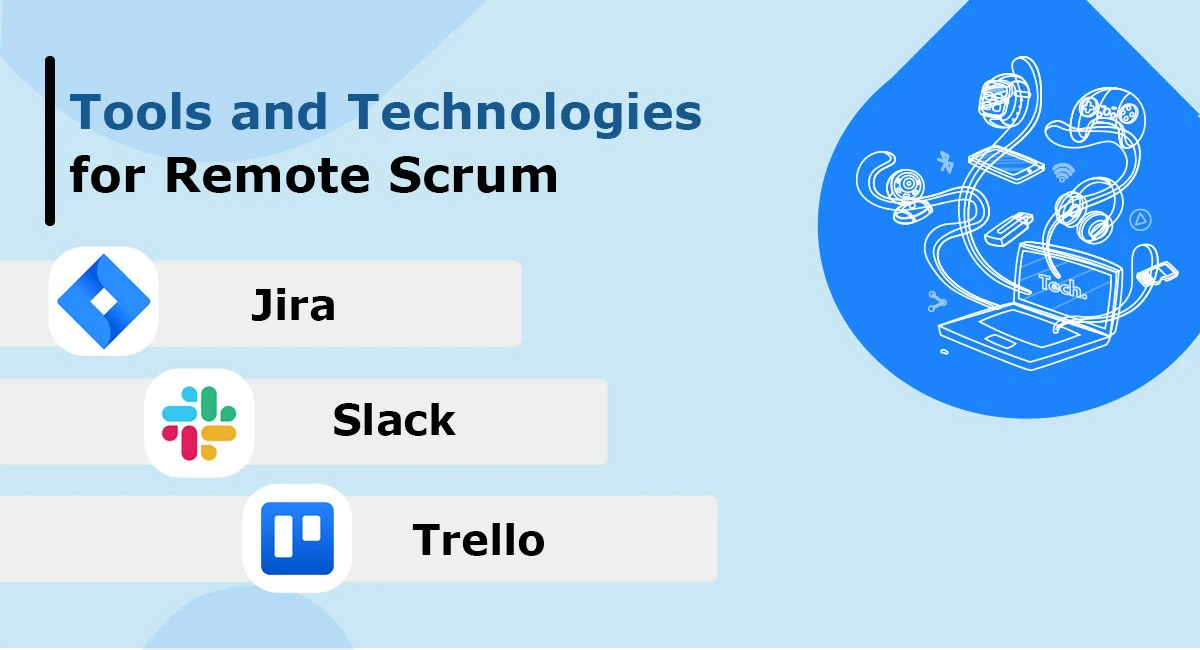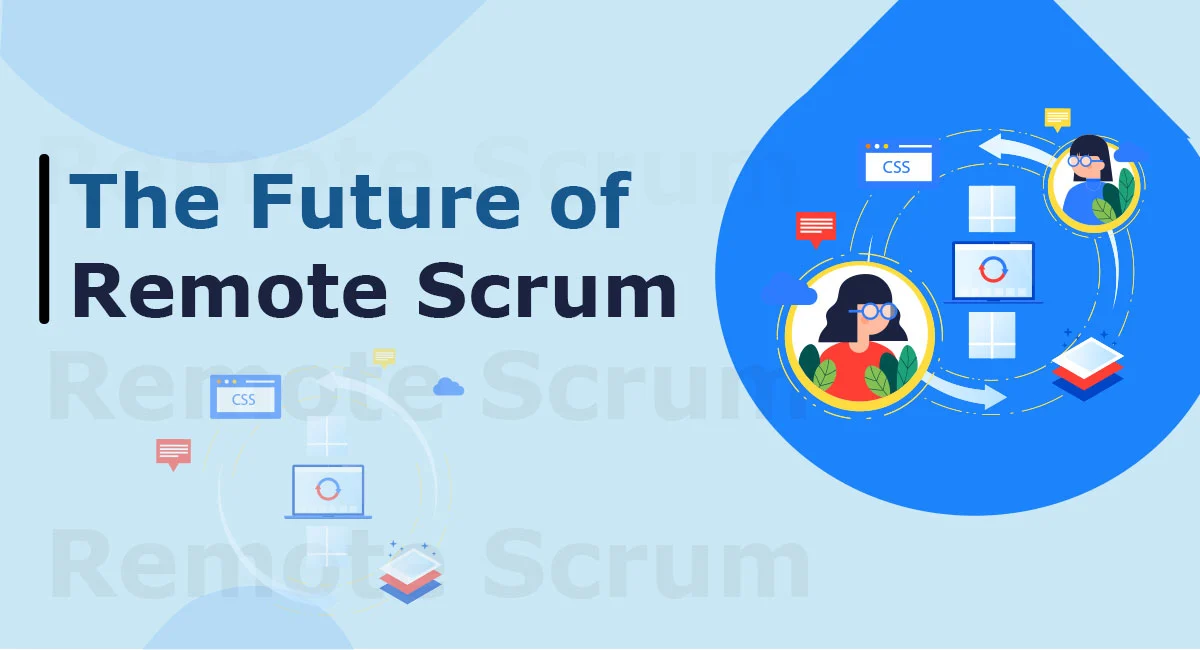As the business world continues evolving, teams now collaborate remotely.
Significant technological advancements have enabled distributed teams across companies to become commonplace rather than exceptional.
This shift has impacted agile methodologies like Scrum.
Here, we'll explore remote Scrum's challenges and strategies for leading distributed teams effectively, focusing specifically on the Certified Scrum Master (CSM) role.
While remote work provides numerous benefits, it presents distinct challenges for Scrum teams.
A primary difficulty is sustaining effective communication and collaboration among members potentially spanning varied time zones and cultures.
Absent in-person interactions, misunderstandings can readily transpire, delaying delivery and reducing productivity.
Furthermore, remote Scrum teams may struggle to maintain cohesion and shared purpose as members might feel disconnected from one another and the organization.

In remote scrum teams, effective leadership is crucial for conquering the aforementioned challenges.
A compelling leader can embolden and incentivize team members, nurture an atmosphere of trust and unity, and guarantee all align with the project goals.
Without adept leadership, remote scrum teams can hastily become chaotic, resulting in missed deadlines and depleted team morale.
This is where a Certified Scrum Master (CSM) plays a vital role.
A Certified Scrum Master (CSM) facilitates agile teams. In remote settings, they bridge teams and organizations, enabling effective scrum implementation and addressing obstacles.
CSMs foster collaboration and productivity, remove impediments to progress, and facilitate communication and decisions.
Their agile expertise guides teams toward successful delivery despite remote settings.
It thoroughly covers agile principles, frameworks, leadership, and techniques to deeply build an understanding of leading distributed teams.
The program provides important understanding into allowing teamwork and effectively applying remote scrum methods.
Topics covered include bridging communication gaps virtually, building trust online, facilitating productive online meetings, and selecting appropriate tools.
With extensive CSM training, Scrum Masters gain expertise to overcome remote work difficulties.

To nurture relationships and prevent miscommunications, an effective Scrum Master focuses on transparency and alignment across distributed teams.
Regular check-ins discuss blockers while documentation keys information. The Scrum Master schedules these connections to promote clarity.

To boost collaboration and productivity for remote scrum teams,the right tools and tech are key.
For instance, virtual whiteboards foster real-time brainstorming. File sharing drives smooth hand-offs between members. And video meetings build personal connections, despite the distance.
For distributed scrum teams, open communication and transparency are key.
To work together well, build routines such as quick daily check-ins, weekly progress reviews, and informal social chats. Note core details in shared spaces.
Select tools enabling real-time interaction.

As remote work becomes more widespread, the challenges of the remote scrum will likely persist.
However, effective leadership and Certified Scrum Master (CSM) guidance can help distributed teams overcome these and thrive remotely.
Clear communication channels, promoting collaboration and trust, and leveraging suitable tools and technologies, allow remote scrum teams to deliver projects successfully and maintain high productivity.
Evidently, remote scrum is here to stay. Embracing agile principles and investing in CSM training will be key to navigating the challenges and benefiting from remote scrum.
Are you prepared to advance your leadership abilities? Register in theNovelVista certified scrum master coursenow. Become a Certified Scrum Master, leading remote teams with confidence and skill.
Thank you for reading!
Unlock expert strategies, tools, and frameworks with our industry-recognized Scrum Master Certification .
Confused about our certifications?
Let Our Advisor Guide You